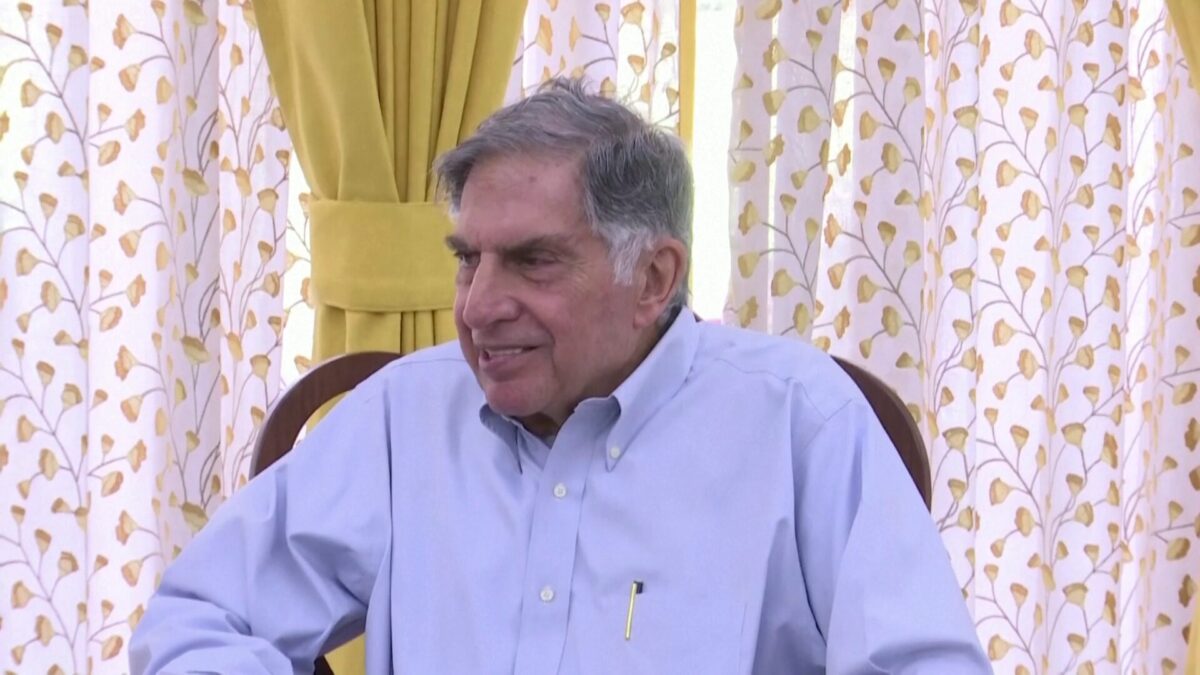Ratan Tata, the former chairman of Tata Group who transformed the Indian conglomerate into a global powerhouse with a series of high-profile acquisitions, has died at 86, the company announced late Wednesday.
Tata, who led the Tata Group for over two decades, had been in intensive care at a hospital in Mumbai, according to sources with knowledge of his condition.
“It is with a profound sense of loss that we bid farewell to Mr. Ratan Naval Tata, a truly uncommon leader whose immeasurable contributions have shaped not only the Tata Group but also the very fabric of our nation,” Tata Group said in a statement.
Indian Prime Minister Narendra Modi paid tribute to Tata, calling him a “visionary business leader, a compassionate soul, and an extraordinary human being.” Modi wrote on social media platform X, “Extremely pained by his passing away. My thoughts are with his family, friends, and admirers in this sad hour.”
Born into one of India’s most prominent business families, Tata graduated from Cornell University with a degree in architecture before returning to India in 1962 to join the family business, which his great-grandfather founded. He initially worked at several Tata companies, including Telco, now Tata Motors, and Tata Steel, where he made his mark by reversing losses at National Radio & Electronics Company.
In 1991, Tata took over as chairman after his uncle J.R.D. Tata stepped down. He assumed leadership just as India began liberalizing its economy, a shift that opened doors for global expansion. One of his first moves as chairman was to streamline the group by imposing retirement ages, promoting younger executives, and consolidating control.
Under Tata’s leadership, the group pursued international acquisitions to fuel growth. In 2000, Tata Group bought British tea maker Tetley for $432 million, followed by Anglo-Dutch steel giant Corus for $13 billion in 2007, then the largest overseas acquisition by an Indian company. A year later, Tata Motors acquired British luxury car brands Jaguar and Land Rover from Ford for $2.3 billion.
Tata also championed ambitious projects in India. He oversaw the development of the Indica, India’s first domestically designed and manufactured car, as well as the Nano, promoted as the world’s cheapest car. Although the Indica was a success, the Nano—priced at about $1,200—struggled due to safety concerns and marketing missteps and was discontinued after a decade.
A licensed pilot known for his reserved demeanor and modest lifestyle, Tata never married and dedicated much of his time to philanthropy. About two-thirds of Tata Sons, the conglomerate’s holding company, is owned by charitable trusts, which fund various social and educational causes.
Tata’s tenure was not without controversy. In 2016, the group was embroiled in a public dispute after it ousted Cyrus Mistry as chairman of Tata Sons. Mistry claimed Tata, who held the title of chairman emeritus, interfered excessively, while Tata Group argued Mistry had failed to revive struggling businesses.
After retiring from Tata Group, Tata became a prolific investor in Indian startups, backing companies such as digital payments firm Paytm, Ola Electric, and Urban Company, a home and beauty services provider.
Tata received numerous accolades throughout his career, including India’s Padma Vibhushan, the country’s second-highest civilian honor, in 2008 for his contributions to industry and trade.





